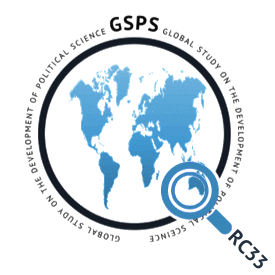04Sep 2017
In Memoriam Thierry DIAS COELHO (1975-2017)
04:15 - By Thibaud Boncourt
By Bob Reinalda, RC33 Executive Member, 28 August 2017
It was at the World Congress of the International Political Science Association (IPSA) of July 2014 in Montreal, Canada that Thierry and I met. We exchanged interests, such as Thierry’s focus on elites and corruption as well as his research on mapping political science in Portugal (together with others). At the Montreal Congress, I was convener of a ‘Special Session on Political Science: Current Performance and Future Strength’, organized by IPSA Research Committee number 33, which deals with the Study of Political Science as a Discipline. During the Congress the Executive Committee of RC33 discussed the possibility of producing a worldwide State of the Art of Political Science by providing information on regions and countries. Thierry and I decided to cooperate and we started to make an inventory of articles, discussing the development of the discipline in specific countries and regions. We began in a very simple way by setting up lists of titles of articles and books, which we were aware of. We also looked at places where we could find additional information, such as UNESCO and IPSA. We developed the project by exchanging e-mails, lists and ideas, and the first thing that struck me was that Thierry had this special sense for details, needed for producing full and coherent bibliographies. The second thing that impressed me was his thinking about a proper website and, maybe even more important, the management related to technical website questions. We fed our lists into the system he was developing, while Thierry also began a thorough search in several web platforms, such as Web of Science, JSTOR and Google Scholar, by using keywords, such as ‘political science in’, ‘study of politics’, etc., with over 8,000 references as a first result. Thierry called this ‘frightening’, but managed to ‘clean’ the list by refining keywords. We then ended up with 750 references, which we could handle and discuss. Other aspects to discuss were the style needed (e.g. the APSA style), longitudinal perspectives (e.g. being able to select the 1950s), several formats (SPSS, Excel, etc.), drawing maps, as well as the design of a logo which explains the project’s aim. The title of the project became GSPS, or Global Study on the Development of Political Science, with http://www.rc33ipsa-globalpolitical.science as URL (Thierry’s invention), which covers elements such as RC33, IPSA and global development of political science and uses the Internet domain name ‘.science’. The website had to be robust, according to Thierry, which meant that he kept organizing multiple attacks to discover weak spots. The two major database elements that we have constructed, available at the GSPS website, are the ‘GSPS Bibliographical Dataset’ and ‘GSPS General Information - Guidelines’. The Bibliographic Dataset allows to find all titles, arranged by country, continent and regions, as well as international political science association, while the Dataset also has a Search Function. The website was launched in October 2015 (see https://www.ipsa.org/news/news/ipsa-rc33-presents-global-study-development-political-science) and well received, including suggestions and titles to be added. While we were planning updates, further elements to add to the website as well as a conference panel, Thierry fell ill. Although he felt almost back to normal after a break of several weeks in early 2016, the cancer proved stronger than Thierry. Hence, we could not continue the project and, after prolonged illness, Thierry passed away in August 2017. The RC33 and academia have lost a remarkable and talented researcher and fine colleague. As far as I know, he graduated in law first, at Université de Paris 1, Panthéon-Sorbonne, and then studied political science at Universidade Nova de Lisboa, where he enrolled in the PhD Programme in Political Science. He also was a visiting researcher at the European University Institute in Florence, Italy, while working on his dissertation on Elites, Corruption and Democracy: Portugal in a Comparative Perspective 1995-2010. Typically, an internationally oriented modern scholar. I remember Thierry as a fine, modest and intelligent person, working very precisely and full of humour. So sad that he had to suffer that much and die far too young.

